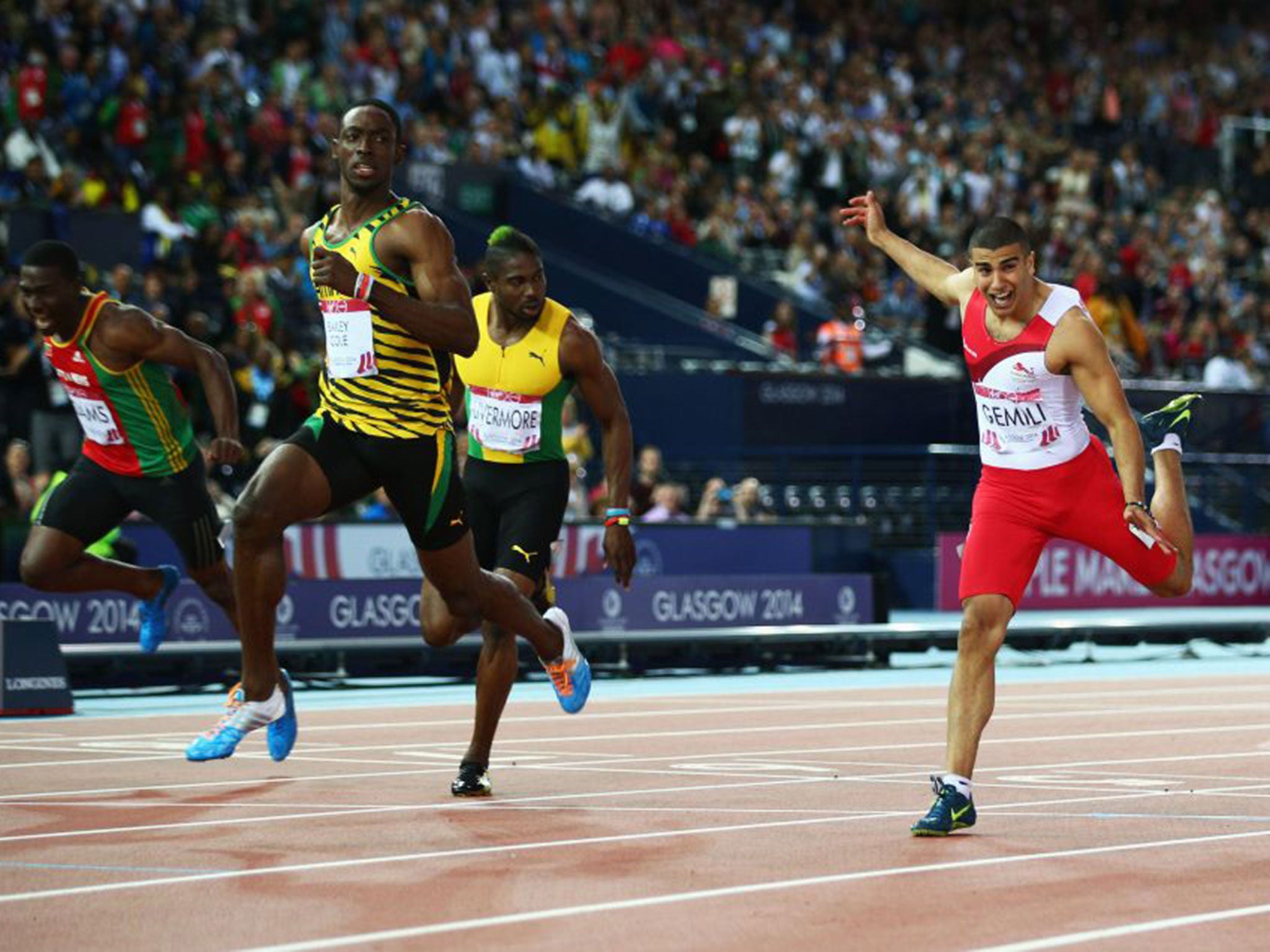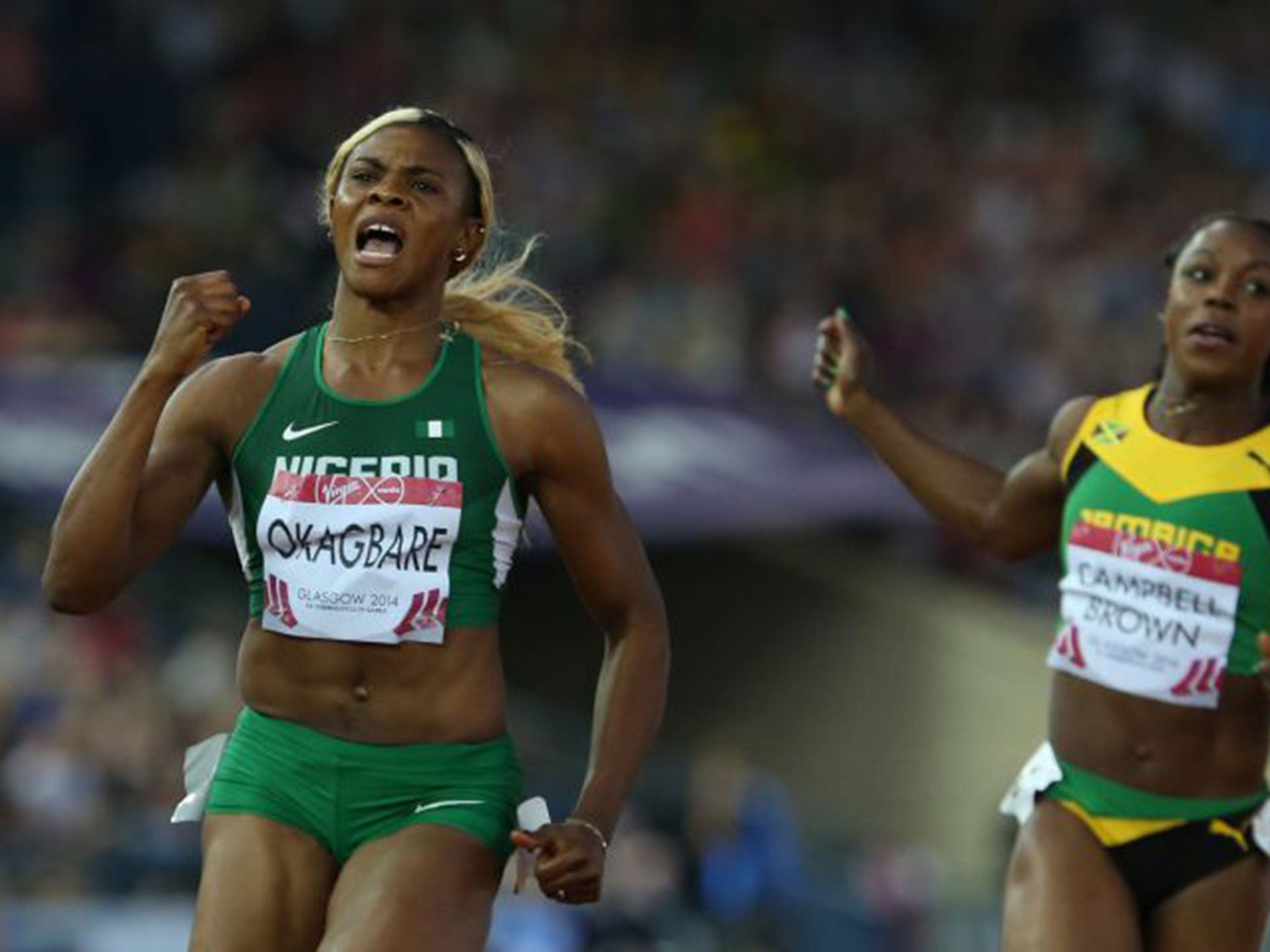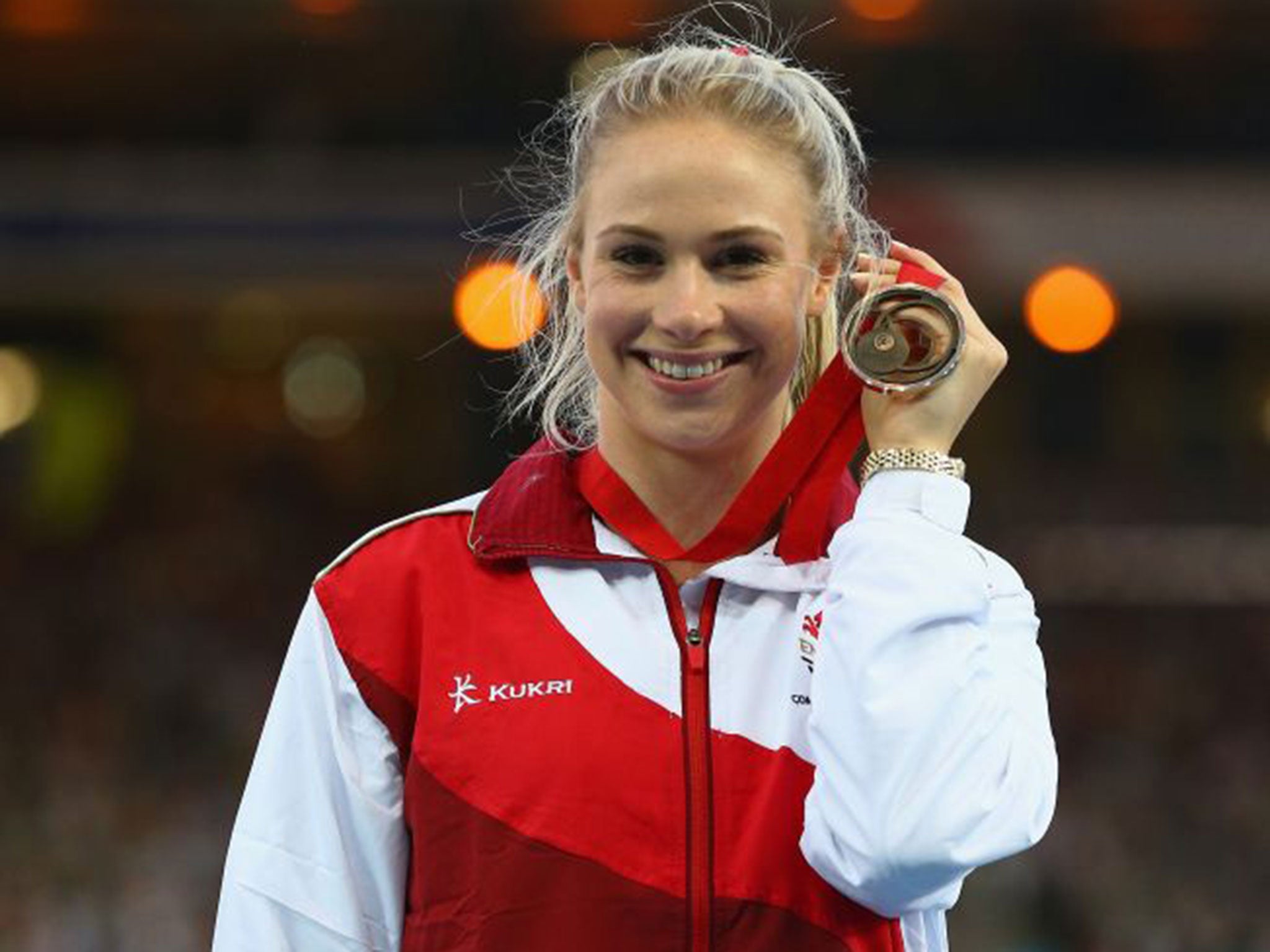Commonwealth Games 2014: Kemar Bailey-Cole brings his A game to pip Adam Gemili for glory in the 100m
'The next big thing in Jamaican athletics' bounces back from a disastrous start to win in 10 seconds flat

Your support helps us to tell the story
From reproductive rights to climate change to Big Tech, The Independent is on the ground when the story is developing. Whether it's investigating the financials of Elon Musk's pro-Trump PAC or producing our latest documentary, 'The A Word', which shines a light on the American women fighting for reproductive rights, we know how important it is to parse out the facts from the messaging.
At such a critical moment in US history, we need reporters on the ground. Your donation allows us to keep sending journalists to speak to both sides of the story.
The Independent is trusted by Americans across the entire political spectrum. And unlike many other quality news outlets, we choose not to lock Americans out of our reporting and analysis with paywalls. We believe quality journalism should be available to everyone, paid for by those who can afford it.
Your support makes all the difference.When Kemar Bailey-Cole last visited Glasgow, he was only deemed quick enough for the “B” race. What a difference 17 days makes.
From also-ran to Commonwealth 100 metres champion, the athlete long ago tipped as the next Bolt finally stepped out of the shadows of his more illustrious training partner last night, while England’s Adam Gemili took his first major medal, a silver, just a fraction behind.
In truth, Bailey-Cole was already part of the “A” team before arriving in Glasgow, winning Olympic gold in the 4x100m Olympic relay with Bolt and Yohan Blake, as well as the world title in the same event at the World Championships.
But an athlete labelled “the next big thing in Jamaican athletics” by his coach, Glen Mills, finally lived up to the moniker in his own right to bounce back from a disastrous start to win in 10 seconds flat and be crowned the fastest man in the Commonwealth.
Under a beautiful evening sky at Hampden Park, it also proved a coming of age for Gemili, the 20-year-old flying out of the blocks, and while he was run down by Bailey-Cole he held off Jamaican Nickel Ashmeade to take silver.
This was not even Gemili’s best event, the 200m, which he will tackle at next month’s European Championships better suited to his technique. With the wind whistling around, he was unable to join the sub-10-second club but that will come in time on the basis of this performance.
But Bailey-Cole was still the star of the night and the parallels with Bolt were in abundance: the lean frame, the long, loping stride and the sluggish start.
It was not, however, to be Jamaica’s night in the women’s 100m, although it was perhaps fitting that the winner, Blessing Okagbare, should meet Bolt’s parents in the build-up to the event, and pose for a photograph with them.
With Shelly-Ann Fraser-Pryce not in the individual event in Glasgow and with the season’s most consistent runner, Michelle-Lee Ahye, unbeaten in 10 races, pulling out the night before with a hamstring injury, Okagbare began as the favourite. That was cemented even more with a blistering run of 10.93sec not even at full tilt and into a headwind in the semi-finals.
But unlike the Olympics, where she had shone in the early rounds and faltered in the final, coming away without a medal, she blazed a trail in Glasgow when it mattered to upstage the Jamaican duo Veronica Campbell-Brown and Kerron Stewart in second and third respectively in a Games record of 10.85sec

At her first Commonwealths she could become one of the stars of the Games as she goes in due course for further gold in the 200m and long jump.
Okagbare said: “My coach said to stay as patient as you can. After 70 metres it just felt easy. My work has been based just on the Commonwealth Games and I was happy just to be able to put up a show.”
VCB, as she is more commonly known, had provided a positive sample for the banned diuretic hydrocholorothiazide at a meeting in her native Jamaica in June last year but the ban was later overturned by the Court of Arbitration for Sport after the testing procedures were deemed faulty by CAS. For those who had tried to sanction her, the overall result may well have been a blessing in disguise.
Britain’s Asha Phillip equalled her personal best of 11.18sec in fourth, all the more impressive after she suffered a hideous knee injury in a trampolining accident in 2007, after which she pondered becoming an actor. On one of the biggest stages of her career, she produced the performance of her life. Fellow Briton Bianca Williams was sixth.
There was, however, to be no place in the final for the other English sprinters, Harry Aikines-Aryeetey and Richard Kilty, who were fourth and sixth respectively, both runners some way shy of their personal bests.
It raised question marks over British Athletics’ early selection policy for these Games, James Dasaolu and Chijindu Ujah overlooked for selection as Dasaolu was still recovering from a hamstring injury and Ujah having not at that stage recorded his personal best of 9.96sec.

The biggest shock of the semi-finals saw pre-event favourite Richard Thompson, the second-fastest man in the world this year with 9.82sec, look out of sorts and unable to qualify for the final.
Elsewhere on the second night of athletes, former ballerina Sophie Hitchon, dubbed the girl who “puts the glamour into hammer”, who also has pet rats called Sid and Roddy, won bronze in the hammer final.
“The first few rounds were a little jerky and I only got it together later on,” said Hitchon. “This is what happens sometimes. But I am amazingly pleased with a medal but I just always want the very best as an athlete.”
The first gold of the day belonged to Dan Greaves winning an Anglo-Welsh battle against Paralympic champion Aled Davies in the para-sport F42/44 discus. It was an apt victory for an athlete whose life began during the Commonwealth Games in Brisbane 32 years ago. “I was born during the Commonwealth Games in 1982, my parents were avidly watching during my mother’s labour, so winning a Commonwealth title is right up there with any of my achievements,” he said.
John Lane, coached by Toni Minichiello who guided Jessica Ennis-Hill to Olympic gold, lies second at the end of the first day of the decathlon with team-mate Ashley Bryant fourth.
Join our commenting forum
Join thought-provoking conversations, follow other Independent readers and see their replies
Comments